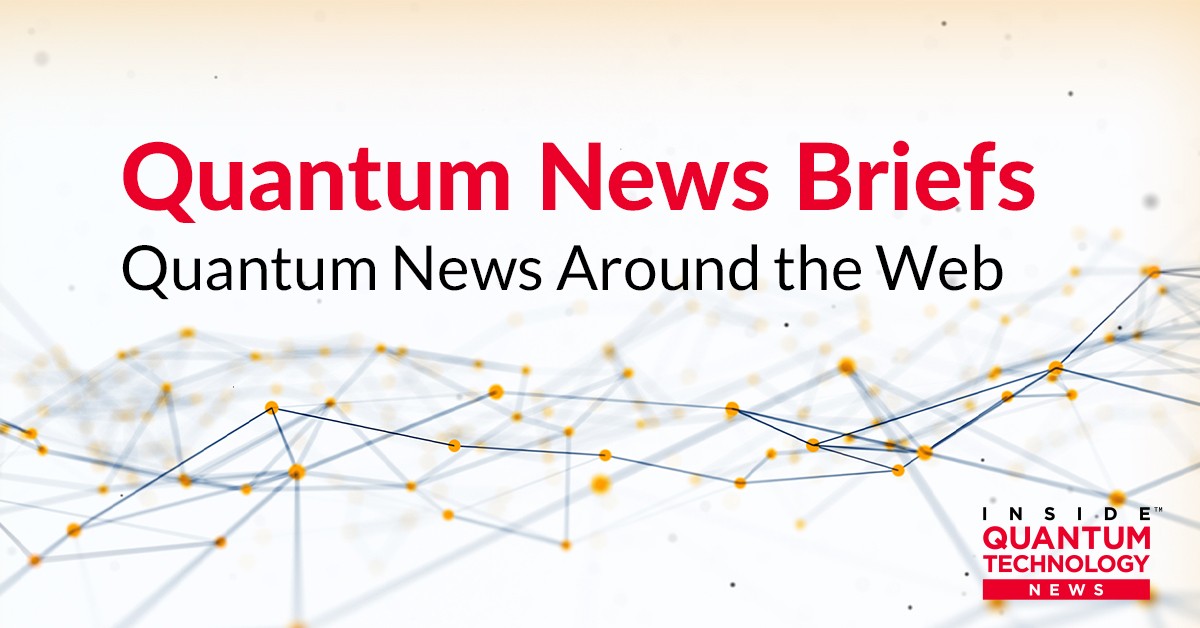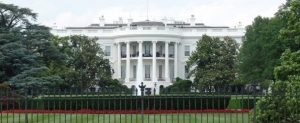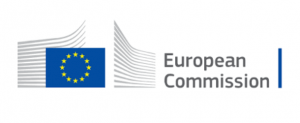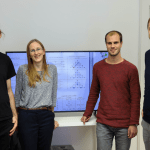Quantum News Briefs November 29: White House gives Federal agencies May 2023 deadline to provide list of quantum-vulnerable cryptographic systems; Space tracking company Unseenlabs adds quantum-safe encryption; Singapore’s telcos, banks, data centres urged to explore use of quantum security at new Quantum Networks Experience Centre + MORE

Quantum News Briefs November 29 begins in Washington, DC with article “White House gives Federal agencies May 2023 deadline to provide list of quantum-vulnerable cryptographic systems”; moves to France where “Space tracking company Unseenlabs adds quantum-safe encryption”; and thirdly focuses on “Singapore’s telcos, banks, data centres urged to explore use of quantum security at new Quantum Networks Experience Centre” + MORE.
*****
White House gives Federal agencies May 2023 deadline to provide list of quantum-vulnerable cryptographic systems
 The Office of Management and Budget has given federal agencies until May 4 next year to provide an inventory of assets containing cryptographic systems that could be cracked by quantum computers. Quantum News Briefs summarizes the FedScoop article about the details of the deadine below.
The Office of Management and Budget has given federal agencies until May 4 next year to provide an inventory of assets containing cryptographic systems that could be cracked by quantum computers. Quantum News Briefs summarizes the FedScoop article about the details of the deadine below.
In a Nov. 18 memo, the White House set out the deadline and said government departments would be expected to subsequently provide an annual vulnerability report until 2035.
In the Nov. 18 memo, OMB said agencies should focus their efforts first on producing an inventory for their most sensitive systems.
The White House said also that within 30 days, federal agencies should designate a cryptographic inventory and migration lead for their organization, and within 90 days of the memo publication, the Office of the National Cyber Director in coordination with OMB, CISA and the FedRAMP Program Management Office would produce instructions for the collection and transmission of inventory of crypto-vulnerable systems.
It added that a working group for post-quantum cryptographic systems will be established, which will be chaired by the federal chief information security officer.
In a statement, Federal CISO Chris DeRusha said: “The Biden-Harris Administration is working to ensure U.S. leadership in the emerging field of quantum computing.” Click here to read the article in-entirety.
*****
Space tracking company Unseenlabs adds quantum-safe encryption
 Unseenlabs, a company that uses satellites to track ship movements has become the first in the world to offer post-quantum encryption end-to-end from the satellite to the cloud. Quantum News Briefs summarizes Ryan Morrison‘s article in Hardware magazine.
Unseenlabs, a company that uses satellites to track ship movements has become the first in the world to offer post-quantum encryption end-to-end from the satellite to the cloud. Quantum News Briefs summarizes Ryan Morrison‘s article in Hardware magazine.
French satellite company Unseenlabs worked with quantum encryption developer Secure-IC on the new protocols. Unseenlabs has a fleet of satellites in low Earth orbit designed to track any vessel anywhere on the ocean at any time. Companies pay a subscription for access to this data, giving them the ability to locate and monitor vessels and keep them safe. It can also be used in the fight against pollution, illegal traffic, piracy and other negative impacts on the ocean and climate.
To combat this risk, companies, governments and organisations are working on post-quantum encryption algorithms using maths problems that even a quantum computer couldn’t easily solve and Unseenlabs is the first satellite fleet operator to implement this throughout its network.
The new project, dubbed bro-pqc, will see the platform deployed to the existing seven spacecraft as well as all future satellites, including the integration of current and post-quantum cryptography solutions. The company says this allows it to future-proof its authentication. Click here to read complete Hardware article.
*****
Singapore’s telcos, banks, data centres urged to explore use of quantum security at new Quantum Networks Experience Centre
 Singapore’s newly launched experience centre, dubbed the Quantum Networks Experience Centre, at research and development hub one-north hopes to accelerate the adoption of new cyber-security software to fend off hackers who could soon wreak havoc with quantum technology. Quantum News Briefs summarizes original article below.
Singapore’s newly launched experience centre, dubbed the Quantum Networks Experience Centre, at research and development hub one-north hopes to accelerate the adoption of new cyber-security software to fend off hackers who could soon wreak havoc with quantum technology. Quantum News Briefs summarizes original article below.
The Quantum Networks Experience Centre was launched last week by National University of Singapore’s quantum security systems spin-off SpeQtral in partnership with Japanese firm Toshiba. The centre aims to promote the adoption of quantum-secure systems in the region.
It is hoped that national agencies and private enterprises such as telcos, banks and data centres can explore commercial uses for the technology.
The effort is backed by the National Research Foundation, Temasek and national institutions such as Enterprise Singapore and the Economic Development Board.
SpeQtral chief executive Lum Chune Yang said: “In terms of general knowledge about quantum communications, it is nowhere near what it needs to be.” On show at the launch is a quantum key distribution (QKD) system – seen by experts as a crucial step towards building an unhackable Internet.
Toshiba is in the midst of testing quantum data transfers through longer distances of fibre optics.
SpeQtral will launch a satellite – the SpeQtral 1 – into space by 2024 to facilitate intercontinental quantum key distribution. Mr Tezuka, an expert in Toshiba’s QKD business unit, said Singapore’s small size and robust network infrastructure give it an advantage in deploying quantum systems. “Singapore is a very important market as it can be a showcase to the world of how quantum can be adopted,” he said.
This allows encryption keys to be exchanged between Singapore and Europe – a way forward for quantum communications on a global scale. Click here to read complete article in Straits Times.
*****
Europe agrees to flagship €2.4bn quantum satellite programme

The European parliament has agreed to back a €2.4bn programme to build a secure quantum satellite network for the region.
The Secure Connectivity Programme will run from 2023-2027 to deploy a constellation of satellites in Low Earth Orbit (LEO) that will include the latest quantum communication technologies for secure encryption in the European Quantum Communication Infrastructure (EuroQCI).
The IRIS² (Infrastructure for Resilience, Interconnectivity and Security by Satellite) is the third flagship space programme after Galileo for navigation and Copernicus for monitoring. It is key for a sovereign, autonomous and secured connectivity infrastructure in the region says the European Commission.
This network would ensure guaranteed access in an unrestricted manner, avoiding dependencies on third-countries and reinforcing the resilience of the European value chains.
The Commission will now present several implementing plans and the tender specifications for setting up the Secure Connectivity system.
Set to start operation in 2024, the quantum satellite network will support a large variety of government applications in border surveillance, crisis management and secure communications for EU embassies, but it will also allow mass-market applications including mobile and fixed broadband satellite access, satellite trunking for B2B services, satellite access for transportation, reinforced networks by satellite and satellite broadband and cloud-based services. Click here to read original article in-entirety in EENewsEurope.
*****
Sandra K. Helsel, Ph.D. has been researching and reporting on frontier technologies since 1990. She has her Ph.D. from the University of Arizona.
























